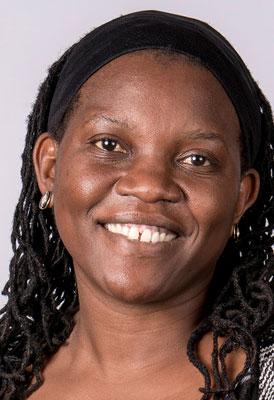
Around the world, the most recognized form of social justice and protection, is the provision of pensions for older persons.
COMMENT | LYDIA MIREMBE | On May 1st, Uganda joined the rest of the world to commemorate International Labour Day, under the theme: Improving Access to Labour justice, a pre-requisite for increased productivity.
Any discussion about labour justice is not complete without reference to retirement benefits and pensions. Around the world, the most recognized form of social justice and protection, is the provision of pensions for older persons. The International Labour Organisation (ILO) estimates that globally, 77.5% of people above retirement age receive some form of old-age pension. However, major disparities still exist across regions, between rural and urban areas, and between women and men.
In Africa, for example, some 600 million young economically active informal sector workers across the continent are excluded from formal pension and social protection arrangements and face the grim prospect of living in extreme poverty when they get too old to work. Specifically in Uganda, out of an estimated 20.5 million people in the working population, only 3,142,311 are covered under existing pension and retirement benefits arrangements. Even those who are covered still face the challenge of inadequate savings. The National Social Security Fund (NSSF) in their 2023 members annual meeting, reported that that 80% of its members, had accrued balances of UGX 10 million or less. The majority of those who are not covered, are in informal employment. The Uganda Bureau of Statistics (UBOS) defines informal workers as those who are employed, but without any social security cover in law or in practice. Such workers have no provision for pension, no contribution to National Social Security Fund and no entitlement to paid annual leave or paid sick leave.
Uganda’s pension systems comprise contributory and non-contributory schemes, both aimed at providing old-age income security. The Public Service Pension Scheme is the main non-contributory, defined benefits scheme and is sponsored by the government. It covers an estimated 41,000 members. On the other hand, contributory schemes mainly include the NSSF, whose membership is estimated at about 2.2 million. Other occupational schemes and mandatory employer-sponsored schemes cover an estimated 390,000 members. Hence, out of Uganda’s estimated population of 44.2 million, as at June 2023, only 15% are covered by retirement benefits and pension arrangements.
Any form of exclusion spells injustice. Exclusion from retirement benefits arrangements is attributed to many factors. For example, many employees do not have any contracts or appointment letters to support their employment status, leaving them at the mercy of their employers. The UBOS National Labour Force Survey 2021, found that 67% of employees in Uganda were employed on the basis of an oral agreement. Overall, only 33% of employed persons were engaged on the basis of written agreements. With such terms of engagement, it is no wonder that only 14.5% of employers were paying NSSF for their employees.
Many are excluded from pensions and retirement benefits on account of gender and location. The UBOS National Labour Force Survey of 2021 found that there were fewer women in formal employment compared to men. The report shows 39.8% of women in employment, compared to 57.8% of men. There were more women in subsistence agriculture at 45.9% compared to men at 34.4%. Suffice it to say that people’s occupations and productivity have great implications for their retirement benefits.
In terms of geographical location and residence, UBOS statistics indicate that 63.5% of the urban population are in employment, compared to 42.5% of the rural population. Urban workers are better advantaged than rural folk because of differences in access to opportunities and services. This shows that the folks in the rural settings are less advantaged even when it comes to retirement planning, saving and investing.
Even when people retire, they may experience some forms of injustice. The commonest cases relate to those who retire and fail access their benefits. Again, some retirees have access to their benefits but they are too low and inadequate. This is mainly because their monthly wages were too low in the first place, which directly impacts retirement savings since wages are a factor of one’s monthly remuneration.
The key question therefore, is how to extend justice to those who are excluded from the current retirement benefits and pension systems. In the Africa Pension Supervisors’ Conference which was hosted by URBRA in November 2023, sector stakeholders agreed that to alleviate exclusion, there is need to build inclusive mechanisms and pension systems that provide citizens with secure, accessible, affordable and well-regulated pension and retirement benefits products. Some very specific proposals include:
- Ensure digital equity, to cater to the digital preferences of savers. Uganda has 12 million internet users and 28 million mobile phone users, but access and use are lowest among the elderly aged 75 and above.
- Take action to ensure that the youth voluntarily save for retirement. Uganda has the youngest population in Africa and one of the highest youth unemployment rates in the world. But old age does not discriminate – all youth eventually grow old.
- Address the barriers that exclude women from retirement benefits programmes. Currently in Uganda, there are more men than women in employment. Moreover, 48% of women in the labour force are self-employed, meaning they don’t have a structured retirement savings plan.
- Establish micro-pension programs to enable low-income earners save for retirement. A micro-pension program with the necessary incentives would ensure broader sector coverage.
- Ensure nationwide coverage and access to retirement benefits services.
- Accelerate public education to ensure that everyone has the necessary information and knowledge to inspire them to start saving for retirement.
Therefore, as we reflect on the issue of labour justice, we should bear in mind that some of the greatest effects of labour injustice will only manifest in retirement, and it might be too late to change anything. While people are still young and productive, they should join a retirement benefits or pension scheme, to avoid old-age poverty.
Some people have structured retirement plans sponsored by their employers, but in Uganda those are too few. For the majority in informal employment, voluntary retirement saving is the only option for now, until such a time when the government operationalises the proposed Long Term National Saving Scheme.
Happy Labour Day!
*****
 Lydia Mirembe is the Manager, Corporate and Public Affairs, Uganda Retirement Benefits Regulatory Authority (URBRA)
Lydia Mirembe is the Manager, Corporate and Public Affairs, Uganda Retirement Benefits Regulatory Authority (URBRA)
 The Independent Uganda: You get the Truth we Pay the Price
The Independent Uganda: You get the Truth we Pay the Price



